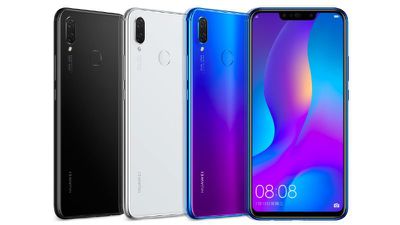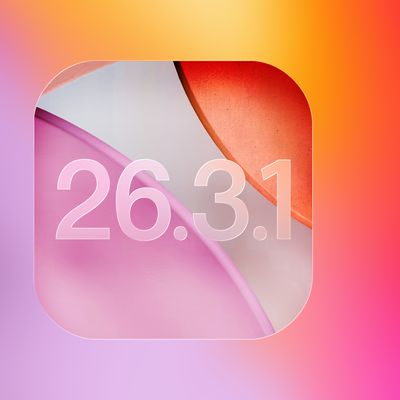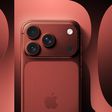Chinese mobile maker Huawei expects to ship 200 million smartphones globally by the end of the year, bringing it within range of Apple as the second-largest vendor worldwide behind Samsung (via The South China Morning Post).
The target was announced by mobile chief Richard Yu Chengdong as the Chinese company launched the latest additions to its mid-range smartphone line-up, the Nova 3 and Nova 3i. Yu said Huawei had shipped 100 million phones as of July 18, the fastest pace of shipments Huawei has seen in years.

"Previously Huawei reached the 100 million shipments mark on December 22, 2015, October 14, 2016 and September 12, 2017. As it's only taken just over six months to reach the target this year, we are now aiming for shipments of 200 million units by the end of 2018," Yu said during the product launch.
Huawei's success comes despite headwinds in the global mobile market affecting top brands like Apple and Samsung. In the 2017 fiscal year, Apple sold 216.76 million iPhones, but reported declines in shipments of 2.8 percent in the first quarter of 2018. Market-leader Samsung finished the year with 317.3 million shipments, but also reported declines in Q1 2018, amounting to a 2.4 percent fall in sales.
Huawei meanwhile shipped a total of 39.3 million phones during the first three months of 2018, gaining ground on Apple's 52.2 million units over the same period, according to an IDC research note released in May.
Huawei calculates its global mobile shipments by combining its Huawei phones and budget Honor-branded phones, which have taken off in the second quarter in Southeast Asian markets, especially India, according to Zaker Li, a senior industry analyst with IHS Markit who spoke to the Morning Post.
"Given that the second half is normally the peak season for smartphone sales as major brands will all release their flagship phones, it will not be difficult for Huawei to exceed 200 million units of phone shipments if it has already completed half of that now," Li said.
Since 2013, Huawei's long-term goal has been to become the largest smartphone vendor globally, ahead of Samsung and Apple. Hopes of making that target received a major boost late last year, when Huawei reportedly began discussions with carriers AT&T and Verizon about selling its flagship Android smartphones in the United States as early as 2018.
In January, however, AT&T reportedly dropped plans to carry Mate handsets from the Chinese company at the last minute, after U.S. lawmakers told the carrier it could put future government contracts under threat.
Currently, U.S. customers have to resort to retailers such as Best Buy or Walmart, or Huawei's direct sales website, to purchase one of their devices, reducing the brand's visibility in the country. Huawei is due to release its next-generation flagship Mate series in the third quarter this year.



















Top Rated Comments
1.3 Billion Smartphone Unit in 2017, Huawei is basically getting some (brand) market share from other Android maker, which is roughly 1.1B per year.
A lost sale of Huawei to any other android maker does make much of a difference to apple.
But it's simply impossible for Apple to get every phone sale on Earth.
Apple is in a unique position. They only sell rather expensive phones with their own OS.
It's like the computer market. There's everyone else selling tons of (sometimes cheap) Windows machines... and then there's Apple selling (relatively expensive) Macintosh computers with their own OS.
Sure... you could say every Huawei sale is a sale that Apple lost. But you gotta consider what that sale actually was.
If someone buys a $100 Huawei phone... they weren't gonna buy a $400-$1,000 Apple phone anyway. So did Apple really "lose" that sale?
I don't think so.
The real comparison is $100 Huawei phones taking sales away from other $100 phones from other manufacturers. Let's at least get on the same playing field.
Look... I'm quite certain Huawei will sell 200 million units a year someday and that number will be higher than Apple.
But those 200 million units are in a totally different price-category than what Apple sells. So I'm not seeing the concern here.